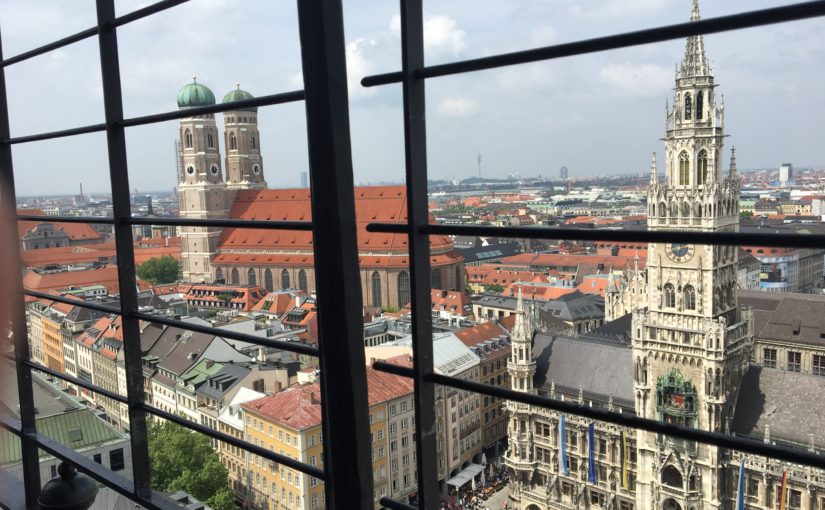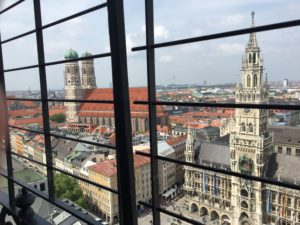
Having been in Munich, Germany, for almost two weeks now, it’s safe to say that it is a very “happening” place. I’m living on Baaderstraße: a great location because I am not only relatively close to school (The Carl Duisberg Center), I am also very close to the oldtown of Munich. In only a few minutes, I can stand in front of the Rathaus, enjoy delicious treats at the quaint Viktualienmarkt, and explore the inside of skyscraping churches.
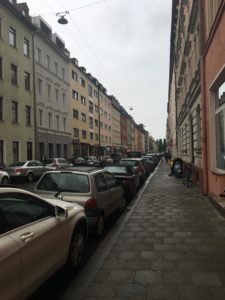
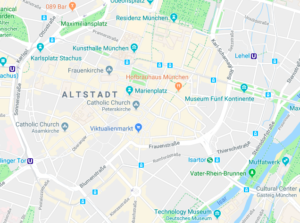
Though Germany is “happening” in various different ways, and one of the most readily viewable ways is in the realm of politics. On my daily journeys throughout the city, it’s fascinating to observe how the political landscape is continually changing.
In the Federal Republic of Germany, there are six parties currently in parliament. For an American accustomed to the 2-party system, this is quite the leap. The sudden rise of a new party, Alternativ für Deutschland (AfD), in the last election came as a shock to many in Germany and abroad, as the rhetoric of the AfD contains a vehement anti-immigrant sentiment. In Munich, the AfD received about 10% of the vote, making it the third largest party. The CDU, or Christian Democratic Union, is the strongest party in Munich and Germany as a whole. It is conservative, though not as far right as the AfD, and the face of this party is Angela Merkel.
As I go about the city, it’s clear to see that political turmoil has not ended with the 2017 election. There are posters in many places which appear to come from the left, asking how much intolerance the tolerant need. Another poster that I see on my way from school says, “Alexa, wen soll ich wählen?” which means, “Alexa, who should I vote for?” These signs come as visible reminders for Germans to remain engaged citizens in their political debate, and not to be numbed into a state of passivity and inaction by the never-ending slog of politics.
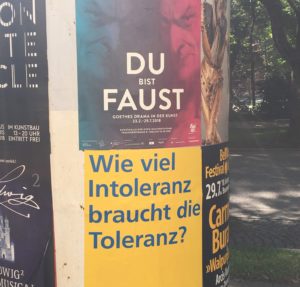
Other visible reminders can be readily found in my neighborhood – down the street from me is the office of political party: the FDP. In a single day I witnessed two demonstrations – they’re impossible to avoid! One was a parade, and it appeared to be protesting a law that would expand the powers of the police. Later in the day I saw a protest outside of the Rathaus, which quoted from the title of a best-selling book in Germany, “Deutschland schafft sich ab” or, Germany destroys itself (subtext: through too much immigration). It really struck me how in Germany I could see not only two protests in one day, but two protests for almost opposite causes.
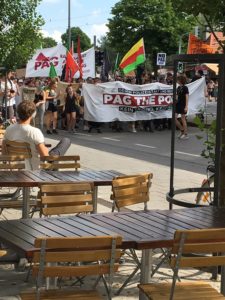
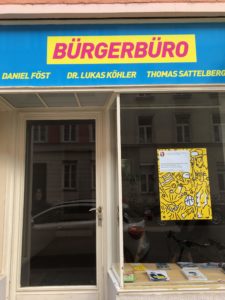
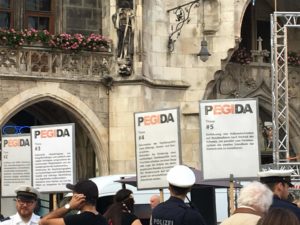
Perhaps the most entertaining encounter I’ve had with German politics has been on the escalator at my U-Bahn station. There are political stickers everywhere in Munich: on skateboards, notebooks, any walled surface, and usually these stickers are against Neo-nazis or conservative parties. Thus, I was intrigued then by a sticker that seemed to be propagated by the AfD. It read: “Grundgesetz vor Merkel schützen,” or “Protect the constitution from Angela Merkel.” The next day I found myself there again, and I planned to take a picture of this sticker; however, the sticker had been shredded to pieces, destroyed and unreadable. The very next day a brand new, bright and shiny “Grundgesetz vor Merkel schützen” sticker appeared on the same escalator. The following day, it too had been torn up.
The German political field, so far as I can tell, is extremely volatile, and the citizens of Munich are on the front lines of this debate. The realm of politics in Germany changes day by day, like the sticker which I alternatively see or don’t see at my subway station. Munich and Germany as a whole is a very “happening” place, and there’s no telling what might happen in the next election when it comes to who will be leading, whether liberal or conservative. You only need to keep your eyes open in Munich in order to witness a plenitude of German opinions being expressed.
